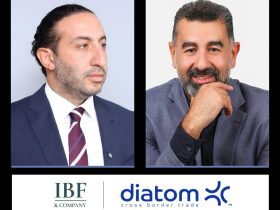Dubai – Masaader News
Countries of the Gulf Cooperation Council (GCC) carried out 15 reforms during the past year to improve their business climate and competitiveness, says the World Bank Group’s latest Doing Business 2018: Reforming to Create Jobs report.
The reform effort was led by Saudi Arabia, with six reforms, and the United Arab Emirates, with four. Kuwait and Qatar adopted two reforms each, while Oman carried out one.
Marking its 15th anniversary, the Doing Business report notes that the GCC states have implemented 103 reforms in the past 15 years, accounting for more than a third of all reforms implemented in the Middle East and North Africa region. The UAE has implemented the highest number of reforms in the region in the past 15 years, with 33 reforms, followed by Saudi Arabia, with 30.
“With their commitment to develop the private sector, the GCC states have done much to improve the business climate for private enterprises. We look forward to a continuation of efforts to embrace the fair, transparent and efficient regulatory practices that the Doing Business report champions,” said Nadir Mohammed, the Regional Director for GCC Countries.
The report ranks Saudi Arabia among the top 20 reformers in the world and the 2nd best reformer among high income and G20 countries, as measured by the improvement in the distance to frontier. Saudi Arabia increased its DTF score by 2.93. On average high-income economies (not only OECD) increased their DTF score by 0.35. Saudi Arabia has the second-best improvement in DTF score among high income economies after Brunei Darussalam.
During the past year, the reforms in Saudi Arabia included improving the efficiency of the land administration system to streamline the property registration process. As a result, Saudi Arabia has an efficient land registry and it takes only 1.5 days to transfer property, at no cost. In contrast, it takes more than 22 days and costs 4.2 percent of the property value on average across OECD high-income economies.
Saudi Arabia also strengthened minority investor protections by increasing shareholder rights and role in major decisions, clarifying ownership and control structures, requiring greater corporate transparency and regulating the disclosure of transactions with interested parties. The reforms in Protecting Minority Investors brought Saudi Arabia to number 10 globally, which should send a strong signal to investors interested to invest in the kingdom.
Saudi Arabia also made paying taxes easier by improving its online platform for filing and paying taxes, which reduced the number of hours needed to pay taxes from 67 to 47. Other reforms included increasing the ease of trading across borders by reducing the number of documents required for customs clearance, which decreased the time for documentary compliance by nine days for both exports (from 90 days to 81 days) and imports (from 131 days to 122 days).
Reforms in the UAE included strengthening construction quality control, thus earning the country the highest possible score on the building quality control index. The UAE also improved access to credit information by starting to provide consumer credit scores to banks and financial institutions.
In the area of Getting Electricity, the UAE has achieved global leader status. It takes 10 days to obtain an electricity connection in the UAE, compared to the global average of 92 days and the OECD high-income average of 78 days.
Recent reforms to streamline the connection process and eliminating interactions between the customer and the utility for external works has allowed the UAE to attain top ranking in this area. Registering a company in the UAE today takes on average 8.5 days and costs 13.4 percent income per capita, compared to 19.5 days and 18.8 percent 15 years ago.
In the past year, Kuwait made registering property easier by improving the transparency of the land administration system. As a result, the time needed to register property has been halved, falling from 70 days to 35 days. Kuwait made starting a business easier by establishing a one stop shop and improving online registration.
Qatar improved access to credit information by starting to provide consumer credit scores to banks, financial institutions and borrowers. Exporting and importing was also made easier with the commissioning of the new Hamad Port.
In Oman, cross border trade was made easier by enhancing an online single window system for exports and imports, and reducing the time required for documentary compliance.
In the global ranking stakes for the ease of doing business, UAE, in 21st place, is the top-ranked economy in the GCC, followed by Bahrain (66), Oman (71), Qatar (83), Saudi Arabia (92) and Kuwait (96).
Overall, the GCC performs well in the area of Paying Taxes. It takes 49 hours to pay taxes on average in the region, compared with an average of 160 hours in the OECD high-income economies and 240 hours globally. In fact, the world’s fastest economies in terms of paying taxes are all GCC states – the UAE, Bahrain, Qatar, and Saudi Arabia.
The GCC underperforms in the area of Starting a Business. It takes 15 days to register a new business, compared to 8.5 days in OECD high-income economies.
Focus Keywords
#Dubai Masaader News #GCC #Doing Business 2018 #World Bank Masaader News #Business Masaader News











